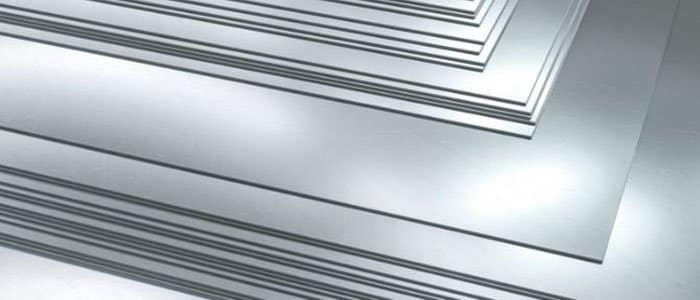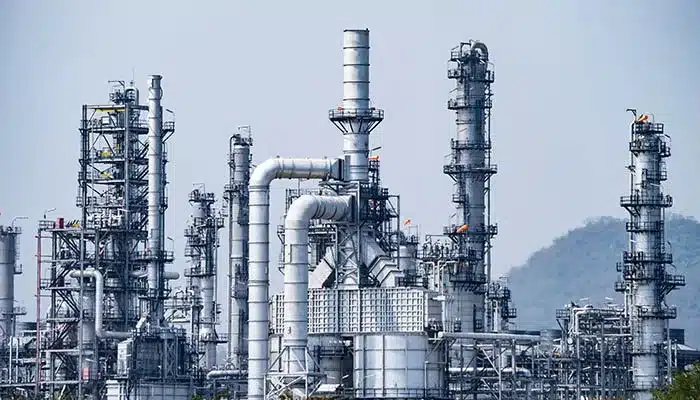Introduction
Titanium is a high-performance metal that began industrial production in the early 1950s. With abundant reserves and outstanding properties, titanium ranks just behind iron and aluminum in industrial importance, earning the title of the “rising third metal.” Titanium and titanium alloys are widely recognized for their low density, high specific strength, excellent corrosion resistance, low thermal expansion, low thermal conductivity, non-magnetic behavior, and excellent biocompatibility. Additionally, titanium materials demonstrate unique functionalities, including hydrogen storage, superconductivity, shape memory, superelasticity, and high damping, making them ideal for advanced functional titanium alloys, titanium sheets, titanium bars, and titanium pipes.
Among these properties, the two most notable advantages of titanium and corrosion resistant titanium alloys are their high specific strength and superior corrosion resistance. These features allow titanium materials to be widely applied in aerospace titanium components, medical titanium implants, corrosion resistant titanium piping, naval vessels, marine engineering, nuclear power plants, thermal power plants, chemical and petrochemical equipment, and metallurgical applications. As a result, titanium and titanium alloys serve not only as lightweight, corrosion-resistant structural materials but also as functional titanium materials, biomedical titanium alloys, and aerospace titanium components in modern high-end industries.
Atomic and Crystal Structure of Titanium
Titanium (Ti) has an atomic number of 22 and a relative atomic mass of 47.867. Its naturally occurring isotopes include Ti-46, Ti-47, Ti-48, Ti-49, and Ti-50, which contribute to its stable physical and chemical properties. Pure titanium exhibits a high melting point ranging from 1640°C to 1670°C, making it suitable for high-temperature applications. These intrinsic atomic characteristics form the foundation for the excellent mechanical strength, corrosion resistance, and biocompatibility seen in titanium, titanium alloys, aerospace titanium, and medical titanium materials.
Electrical Properties of Titanium
As a transition metal, titanium (Ti) exhibits relatively high electrical resistivity. Its electrical conductivity is significantly influenced by impurities such as oxygen, nitrogen, carbon, and iron, which can cause variations in measured resistivity. Despite this, studies have shown that titanium demonstrates superconductivity when cooled close to absolute zero. These unique electrical properties contribute to the versatility of titanium and titanium alloys, making them suitable for specialized applications in aerospace titanium components, corrosion resistant titanium materials, and high-performance titanium devices.
Thermal Properties of Titanium
Titanium (Ti) and titanium alloys exhibit low coefficients of thermal expansion and low specific heat capacity. Their thermal conductivity is relatively low, approximately 1/15 of aluminum and about 1/5 of steel, which influences heat transfer in high-performance applications. These thermal characteristics make titanium, corrosion resistant titanium, and aerospace titanium materials ideal for lightweight structural components, heat exchangers, and high-temperature industrial equipment where dimensional stability and thermal resistance are critical.
Chemical and Corrosion Properties of Titanium
Titanium (Ti) and titanium alloys exhibit high chemical reactivity, which increases significantly with rising temperature. At room temperature, the reactive surface of titanium begins to absorb hydrogen, and hydrogen uptake increases notably around 300°C. Titanium reacts with hydrogen significantly at approximately 600°C, while reactions with nitrogen occur above 700°C. Vacuum annealing can nearly completely remove hydrogen, but oxygen and nitrogen cannot be fully eliminated.
Despite its chemical reactivity, titanium and titanium alloys demonstrate outstanding corrosion resistance in most chemical media, making them highly suitable for corrosion resistant titanium materials, titanium piping, and aerospace titanium components. However, four inorganic acids, four concentrated hot organic acids, and highly corrosive aluminum chloride can cause severe corrosion. At elevated temperatures, titanium and titanium alloys are also sensitive to stress corrosion in dry sodium chloride environments.
In most galvanic systems, titanium and titanium alloys exhibit high positive electrochemical potentials, second only to nickel-based alloys. This property ensures that when in contact with other metals, titanium remains largely immune to galvanic corrosion, offering excellent electrochemical corrosion resistance. These characteristics make titanium, corrosion resistant titanium, and aerospace titanium materials ideal for demanding industrial, chemical, and marine applications.
Mechanical Performance of Titanium
The mechanical performance of titanium and high-strength titanium alloys is strongly influenced by the presence of impurities. Increasing levels of oxygen, nitrogen, and carbon can enhance tensile strength but reduce ductility. Among these, nitrogen has the most significant impact on reducing plasticity, oxygen has a moderate effect, and carbon has the least influence.
Careful control of these impurities is essential for producing aerospace structural titanium, medical-grade titanium alloys, and corrosion-resistant titanium alloys that require a precise balance between strength, flexibility, and long-term durability. Understanding the relationship between impurity content and mechanical properties is critical when selecting titanium materials for critical industrial, aerospace, or biomedical applications.
Common Classifications, Grades, and Characteristics of Titanium and Titanium Alloys
Titanium materials are widely used in manufacturing critical components and equipment that operate under extreme conditions. Common titanium products include titanium sheets, titanium pipes, titanium bars, titanium wires, titanium forgings, and titanium castings. These products are essential in industries requiring high-performance titanium alloys for aerospace, medical, chemical, and marine applications.
Titanium and titanium alloys are primarily classified into three types based on crystal structure:
- Alpha (α) Titanium – Exhibits excellent corrosion resistance, good weldability, and high creep strength, making it suitable for chemical processing equipment, aerospace components, and biomedical implants.
- Beta (β) Titanium – Offers high strength and formability at elevated temperatures, often used in aerospace structural parts, high-strength fasteners, and industrial machinery components.
- Alpha-Beta (α+β) Titanium – Combines the corrosion resistance of α-phase with the strength of β-phase. Alloys such as Ti-6Al-4V (Grade 5) are widely used in aerospace, medical devices, and high-performance industrial applications.
Understanding the classification and characteristics of different titanium alloys helps engineers and designers select the appropriate titanium materials for applications requiring lightweight, corrosion-resistant, and high-strength properties.
| Type / Alloy | Tensile Strength (MPa) | Service Temperature (°C) | Key Features | Typical Applications |
| Commercially Pure Titanium (Grade 1, UNS R50250) | ~240 | ≤300 | Highest ductility, excellent corrosion resistance, easy formability for titanium pipes, sheets, bars | Chemical equipment, seawater pipelines, titanium heat exchangers, industrial piping |
| Grade 2 Titanium (UNS R50400) | ~345 | ≤400 | Balanced strength and ductility, good weldability, suitable for titanium alloy fabrication | Pressure vessels, aerospace skins, titanium bars and sheets, chemical processing |
| Grade 3 Titanium (UNS R50550) | ~450 | ≤450 | Higher strength, good corrosion resistance, ideal for titanium pipes and structural components | Petrochemical equipment, condensers, industrial piping, titanium fabrication |
| Grade 4 Titanium (UNS R50700) | ~550 | ≤500 | Strongest commercially pure titanium, excellent weldability for medical titanium and aerospace components | Medical implants, marine structures, titanium sheets, pipes, chemical vessels |
| Ti-0.2Pd (Grade 7) | – | ≤400 | Palladium added for superior corrosion resistance, chemical resistant titanium alloy | Chemical equipment, seawater applications, titanium alloy piping |
| Ti-0.05Pd (Grade 11) | – | ≤400 | Improved corrosion resistance over Grade 2, titanium palladium alloy | Chemical processing, seawater systems, titanium alloy pipes |
| Ti-6Al-4V (Grade 5 titanium) | 895–950 | ≤400 | High strength, excellent weldability, corrosion resistant, widely used aerospace titanium alloy | Aerospace structures, medical implants, fasteners, industrial components, titanium bars, sheets, pipes |
| Ti-6Al-4V ELI (Grade 23 titanium) | ~860 | ≤350 | Low impurity, high toughness, ideal for welding, medical titanium implants | Medical implants, aerospace fasteners, surgical instruments, titanium alloy components |
| Ti-3Al-2.5V (Grade 9 titanium) | ~620 | ≤315 | Excellent formability, high corrosion resistance, suitable for titanium tubing and piping | Tubing, aerospace hydraulic systems, chemical pipelines, titanium bars |
| Ti-0.3Mo-0.8Ni (Grade 12 titanium) | ~480 | ≤400 | High corrosion resistance, good weldability, ideal for chemical and seawater titanium piping | Heat exchangers, chemical pipelines, seawater systems, titanium pipes and sheets |
| Ti-10V-2Fe-3Al (Ti-1023) | 1000–1200 | ≤480 | High strength, heat-treatable, good fatigue resistance, used in high-strength aerospace titanium alloy components | Aerospace landing gear, structural parts, high-strength fasteners, titanium alloy sheets and bars |
| Ti-15V-3Cr-3Al-3Sn (Ti-15333) | 900–1050 | ≤480 | Cold workable, superplastic, high fatigue resistance, β titanium alloy for aerospace applications | Aerospace skins, elastic components, high-strength fasteners, titanium alloy structural parts |
| Ti-5553 | 1200+ | ≤480 | Ultra-high strength, age-hardenable, excellent fatigue resistance, aerospace and industrial titanium alloy | Aerospace landing gear, oil & gas tools, high-strength structures, titanium alloy bars and sheets |
| Ti-3Al-8V-6Cr-4Mo-4Zr (Beta C) | 1100 | ≤425 | High fatigue strength, excellent toughness, suitable for high-strength β titanium alloy components | Aerospace, oil & gas tools, structural components, titanium alloy bars and sheets |
| Ti-6Al-2Sn-4Zr-2Mo (Ti-6242) | 900 | ≤550 | Excellent high-temp strength, creep resistant, high-temperature titanium alloy | Turbine blades, engine casings, aircraft structural parts, titanium alloy components |
| Ti-6Al-2Sn-4Zr-6Mo (Ti-6246) | 1100 | ≤550 | Higher strength, fatigue resistant, suitable for aerospace high-temperature titanium applications | Turbine blades, structural parts, aerospace engines, titanium alloy sheets |
| Ti-1100 (Ti-6Al-2.75Sn-4Zr-0.4Mo-0.45Si) | 950 | ≤600 | Outstanding creep resistance, high-temperature durability, high-temperature aerospace titanium | Aircraft engine blades, aerospace turbine parts, titanium alloy components |
| Ti-6Al-7Nb | – | ≤400 | Excellent corrosion resistance, biocompatible, high toughness, medical titanium alloy | Orthopedic implants, dental devices, surgical instruments, titanium alloy implants |
| Ti-8Al-1Mo-1V | – | ≤550 | High-temperature structural alloy, good mechanical properties, high-strength titanium alloy | Aircraft engines, aerospace components, titanium alloy bars |
Our Advantages
- Extensive stock of commercially pure titanium, titanium alloys, and aerospace titanium materials.
- International export experience with full certifications.
- Advanced quality control: ultrasonic testing, hardness and tensile testing machines, metallographic analysis equipment, etc.
- Customization available for titanium sheets, titanium bars, and titanium pipes.
- Technical support team provides guidance on material selection, processing, and application.
- High-Performance Materials: We provide high-strength, corrosion-resistant, and low-density titanium alloys to meet the stringent requirements of various industries.
- Advanced Production Equipment: We possess advanced melting furnaces, forging equipment, heat treatment furnaces, and other production facilities to ensure consistent product quality.
- Global Supply Capabilities: We have a sales and service network throughout China, enabling rapid response to customer needs.
- Extensive Project Experience: We have participated in numerous major international projects and accumulated extensive industry experience.
-
Fast customization and delivery, supporting small to large batch orders
-
Full traceability for every titanium product, ensuring reliability and compliance
International partners and project experience
Daxun Metal Group is a trusted supplier of titanium and titanium alloy products, with extensive experience collaborating with internationally renowned companies across aerospace, oil & gas, medical, marine engineering, and chemical industries. Our global project expertise ensures that our high-performance titanium alloys, corrosion-resistant titanium pipes, and custom titanium components meet the highest international standards.
Aerospace Titanium Solutions
We provide advanced aerospace titanium alloys for critical aircraft structures, engine components, and high-strength fasteners. Partnering with top global aerospace manufacturers, we ensure precision, reliability, and lightweight performance in every product.
Oil & Gas and Marine Engineering
Our corrosion-resistant titanium alloys and piping systems are widely used in offshore platforms, deep-sea drilling, and marine engineering projects. We collaborate with leading oil & gas enterprises to deliver durable titanium pipes, sheets, and custom components that withstand extreme environmental conditions.
Medical Titanium Expertise
Daxun Metal Group supplies biocompatible titanium alloys for medical implants, surgical instruments, and healthcare equipment. Working with top medical device manufacturers worldwide, we ensure excellent biocompatibility, precise machining, and high-quality standards for critical medical applications.
Chemical and Industrial Equipment
Our titanium sheets, bars, and alloy components are used in chemical reactors, heat exchangers, and corrosion-resistant piping systems. By partnering with global chemical and industrial engineering companies, we guarantee long-term reliability and superior corrosion resistance.
Applications & Case Studies
- Aerospace: Ti-6Al-4V and Ti-1023 used in landing gear, airframes, and turbine blades.
- Medical: Grade 23 and Ti-6Al-7Nb used in orthopedic implants and dental devices.
- Chemical & Marine Engineering: Grade 2, Grade 12, and Ti-0.2Pd used for corrosion resistant titanium piping and heat exchangers.
- Industrial & Energy: Ti-6242, Ti-6246, and Ti-5553 used in high-temperature and high-strength structural applications.
Advanced Production Equipment for Titanium and Titanium Alloys
At Daxun Metal Group, our production facilities are equipped with state-of-the-art machinery, ensuring that every titanium sheet, titanium pipe, titanium bar, and titanium wire meets strict ASTM, AMS, ISO, and GB standards. Our equipment guarantees precise dimensions, consistent mechanical properties, and superior surface quality.
Key Production Equipment Includes:
-
Vacuum Arc Remelting (VAR) Furnaces – Producing high-purity commercially pure titanium and titanium alloys, ensuring minimal impurities and superior mechanical performance.
-
Electron Beam Cold Hearth (EBCH) Furnaces – For high-end titanium alloys with precise chemical composition control.
-
Forging Presses and Forging Lines – Producing titanium forgings with excellent structural integrity and uniform mechanical properties, ideal for aerospace, medical, and industrial components.
-
Cold and Hot Rolling Mills – Manufacturing titanium sheets and plates with high dimensional accuracy.
-
Extrusion Presses – Producing seamless titanium pipes and tubes with uniform wall thickness and diameter.
-
Hydraulic Bending Machines & JCO Forming Lines – Shaping large-diameter titanium tubes.
-
CNC Machining Centers – Fabricating complex titanium components for aerospace, medical, and industrial applications.
-
TIG, MIG, and Plasma Welding Stations – Ensuring welded titanium pipes and components with excellent corrosion resistance and mechanical integrity.
-
Heat Treatment Furnaces – Controlled solution treatment and aging for optimal strength, toughness, and fatigue resistance.
-
Surface Finishing Lines – Pickling, polishing, and brushing for high-quality titanium sheets, bars, and pipes.
With these advanced facilities, we maintain full control over the titanium production process, from raw material melting to final product inspection, providing our customers with high-performance titanium and titanium alloys for critical applications in aerospace, medical, chemical, and marine industries.
FAQs
Q1: Which titanium alloy is best for marine applications?
A: Grade 2, Grade 12, or palladium-enhanced titanium alloys offer excellent corrosion resistance in seawater environments.
Q2: Which grade is ideal for medical implants?
A: Grade 23 titanium (ELI) is commonly used for medical titanium implants due to its low impurities, high toughness, and biocompatibility.
Q3: Can you provide custom sizes and processing?
A: Yes, we provide custom titanium sheets, bars, pipes, and precision machining services for aerospace, medical, and industrial applications.
Q4: What is the typical delivery time and order quantity?
A: We support small-batch custom orders with fast delivery, as well as large-scale supply for industrial projects.
Conclusion & Call to Action
Titanium and titanium alloys combine lightweight, corrosion resistance, high strength, and biocompatibility, making them ideal for aerospace, medical, chemical, marine, and industrial applications.
Contact us today to inquire about custom titanium sheets, titanium pipes, titanium bars, and high-performance titanium alloys for your projects. Benefit from our extensive experience, professional technical support, and fast delivery.




